Green and gold and pink – How Barbie and The Matildas have created a tipping point
As the world turns Barbie pink, literally driving a worldwide shortage of pink paint, Australia is turning green and gold in support of The Matildas’ Women’s World Cup campaign. Our physical and digital worlds are awash with two clashing colour palettes that are seeding remarkably similar cultural effects.
Through the lens of Malcolm Gladwell’s seminal book The Tipping Point, Victoria Mackinlay, chief storyteller at House of Kitch, investigates how The Matildas and Barbie are driving major change in the field of female empowerment.
In The Tipping Point, Gladwell describes how sociological change happens when small actions (at the right time, in the right place, with the right people) create a ‘tipping point’– when a domino effect creates an epidemic of demand, sweeping through a population like a virulent virus.
Gladwell shares three laws in the Tipping Point. “The ‘Law of the Few’ is how an epidemic begins – when a few highly infectious individuals become viral vectors for a product by adopting it themselves and spreading the word,” explains Samara Kitchener, managing director of House of Kitch.
Mattel and Warner Bros. Discovery played a stroke of genius casting Margot Robbie (named one of Time’s most influential people and winner of Maxim’s HOT 100 for the last three years) in the titular role. Since she was first spotted rollerblading in fluoro at Venice Beach, buzz has been mushrooming. Margot wowed the premiere’s pink carpets with iconic Barbie outfits and, when word spread that she made the Barbie crew wear pink once a week while filming, everyone wanted to get in on the trend.
‘Barbiecore’ fashion has seen pink dominating catwalks and social media feeds around the world leading to high demand for pink high-street clothing. Cue: collabs with everyone from Balmain to Cotton On and Crocs.
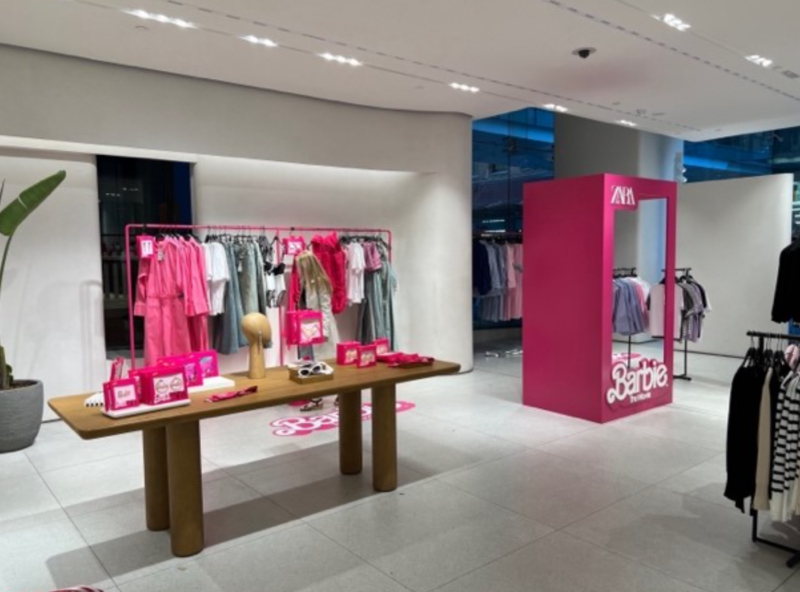
Barbie fashion in Zara, Sydney CBD.
Nike, who designs and makes the CommBank Matildas’ kit, brilliantly used ‘The Law of the Few’ by featuring Matildas’ idols in partnership with Vogue Australia. According to Gemba, the Matildas have a 4.4m fan base with rapidly growing ‘fanaticism’.
Nike also collaborated with stylist and influencer Jana Bartolo and seeded jerseys to sporting heroes, like Tayla Harris.
Through fashion collaborations, these brands are meeting many female consumers on their home turf.
“By putting a fashion lens on sporting apparel, Nike is repositioning the football jersey and expanding their consumer base,” Samara says. “The call to action is to embrace your own style and wear your jersey your own way which is on brand for all partners. Who would have thought of wearing a football jersey with an orange vinyl skirt – stretching boundaries is how trends start.”
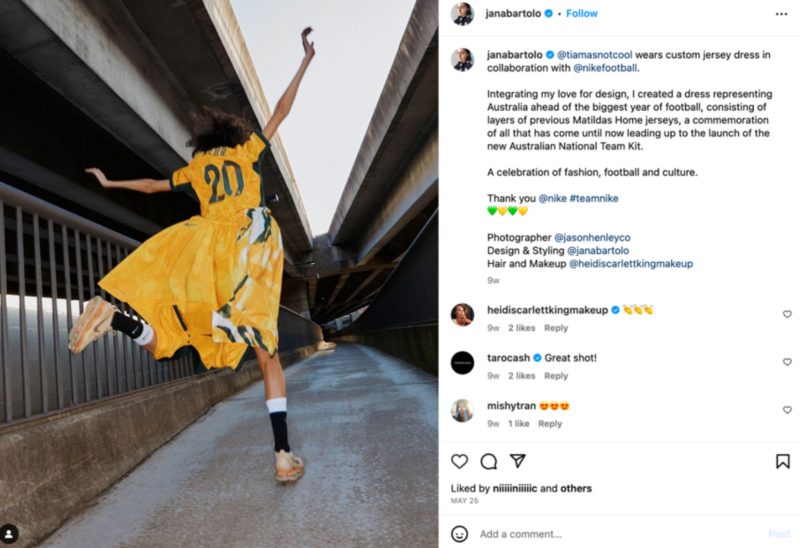
Make it stick
Which brings us on to stickiness … these clever collaborations are going much further than fashion. In fact, they’re so ubiquitous, they’re touching every aspect of the customer experience. This is where Gladwell’s 2nd law – ‘The Stickiness Factor’ comes in.
Going out? Grab a pink burger at Grill’d, then get your boba fix with a Barbie Chatime.
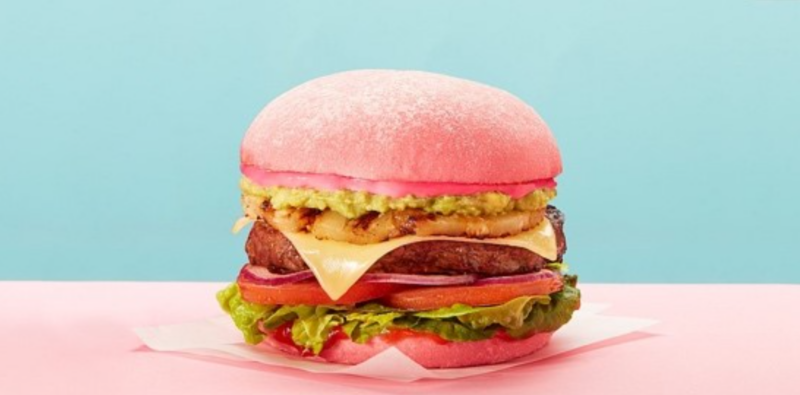
The Barbie Dreamburger at Grill’d
Chilling at home? Light a Barbie candle, slide on your Barbie slippers and Google Barbie screening times. You get the idea …
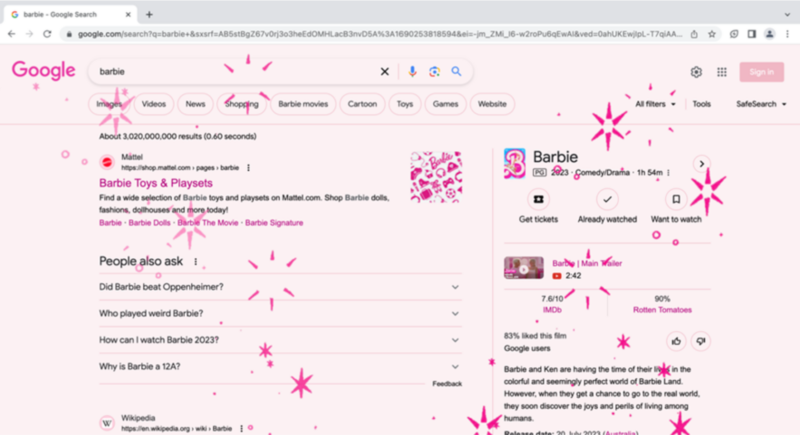
Mattel reportedly signed 100 Barbie licensing deals and the variety and diversity of the deals makes them so widespread, they’re unavoidable. Which is exactly the point.
“Engaging with a brand in a playful way, like eating a pink burger, is classic ‘Stickiness Factor,’” says Samara. “Small product tweaks increase relevance, talk-ability and memorability helping viral spread.”
Viral spread requires legions of messengers and what both campaigns have done to great effect is enabling others to spread their messages in a cleverly orchestrated domino effect.
Since Football Australia won the bid to co-host the FIFA Women’s World Cup, they have signed licensing deals with partners like Uber-trendy, customisable, emotional-support water-bottle-maker Frank Green. Their Smiggle collab creates merchandise that appeals to young Matildas fans and their gatekeepers.
“The great thing about licensing is that you’re not only turning the general public into walking, talking billboards; you’re also creating much deeper bonds with your consumers, leading to a wave of support,” says Samara.
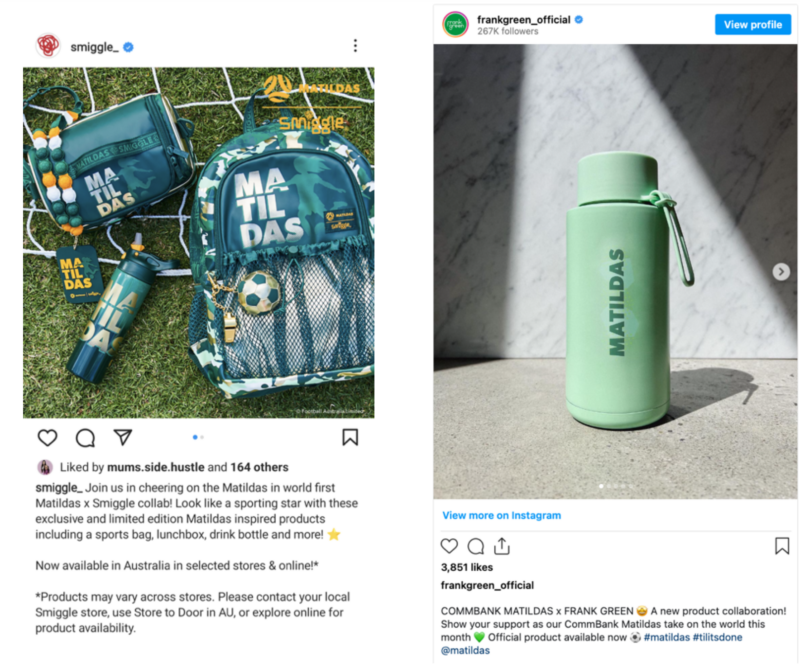
Green and gold: Matildas’ collaborations with Smiggle and Frank Green
Football Australia also partnered with Colette on a range of handbags and accessories which are adorning fans at all the Matildas’ games.
“We recognised that the women’s sport consumer wants a broader opportunity to show their love for their team beyond just a scarf or hat or jumpers,” says Tom Rischbieth, head of commercial and events at Football Australia.
“We’ve doubled the number of licensees in our program so there’s over 220 different licensed products that a Matildas fan can buy.
“We’ve also expanded where Matildas products can be found, meaning we’re being seen for the first time in the likes of Myer, The Iconic, Woolworths and other major retailers, in addition to the major partnership we have with Australia’s leading sports retailer, Rebel.”
The Colette scrunchies, hairclips and jewellery sold out online within three days (seeing a sell through of 22% versus a usual 4-5%) but feast your eyes on this magnificent piece:
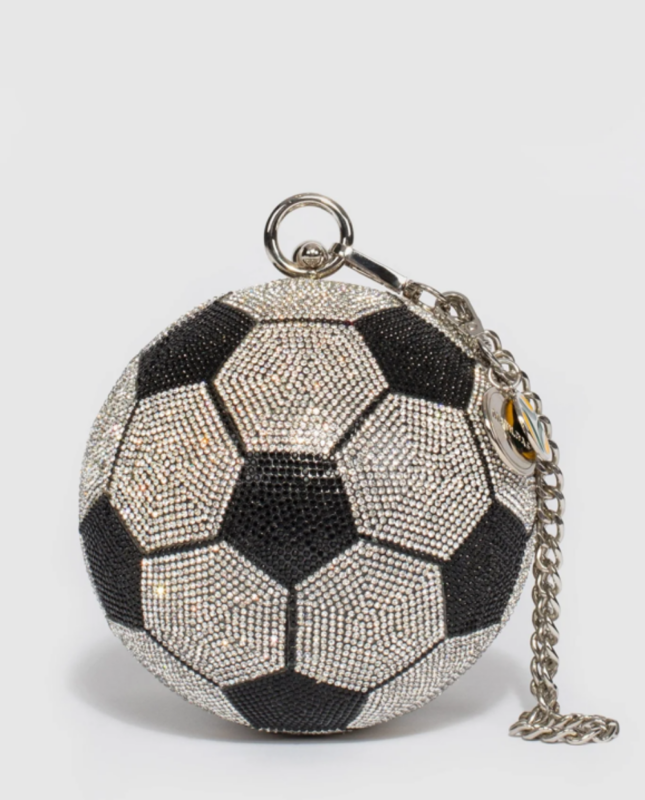
Never before has anything screamed: “I am female. I love football” so successfully.
The Power of Context
Finally, we have Gladwell’s third rule – The Power of Context. Whether or not an epidemic spreads depends on the suitability of the context. If an idea or product is launched into an environment that’s a great fit, they will spread fast and wide.
Both the Matildas and Barbie strive for female empowerment – empowering through sport or empowering through potential and possibilities – which is highly relevant to 2023’s mood … actually, not everywhere. In South Korea, which remains deeply patriarchal and where ‘feminism’ is a dirty word, the Barbie movie is flopping – proof of criticality of context.
Partnerships breakthrough and shine when they’re built on a foundation of shared values and missions. “Both Barbie and the Matildas are relinquishing some control of their narratives by allowing other parties to spread their message,” says Samara. “This is a terrifying concept for many brands, but is key to the success they are seeing.” It’s the aligned values and goals that makes this less scary.
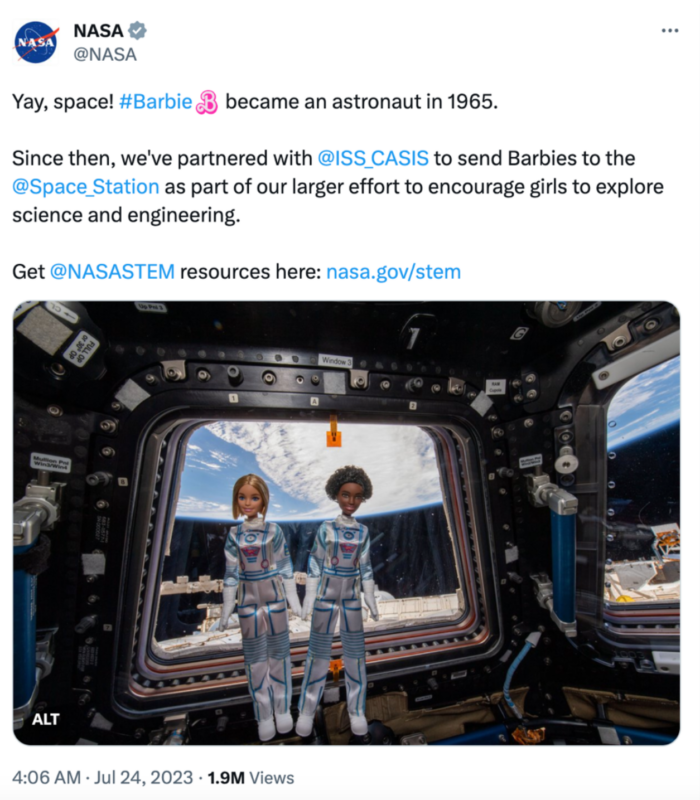
Football Australia’s goal (following the Women’s World Cup) is to have as many girls as boys playing football by 2027. With match attendance, viewership and merchandise sales records all being smashed, there’s evidence that the needle is moving and major change is already happening.
As for Barbie, you just need to step outside to feel like you’re living in a Barbie world. From building, billboard and bus stop takeovers to Bondi Icebergs’ Barbie makeover – even NASA is getting in on the action.
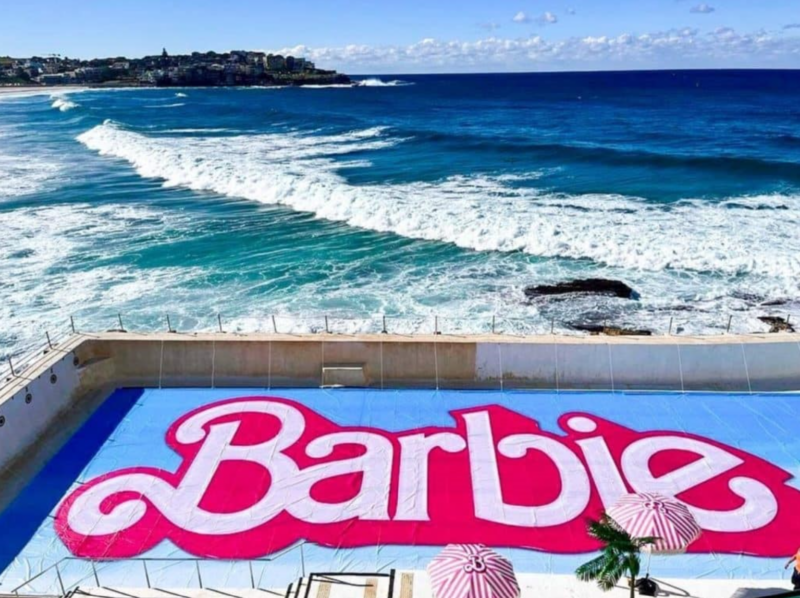
Come on Barbie, let’s go party … at Icebergs. Image: @icebergsclub
Pink, green and gold are re-orienting the cultural zeitgeist. They’re the domino effect of 2023, driving an exciting tipping point for social change. And we’re here for it.

Have your say